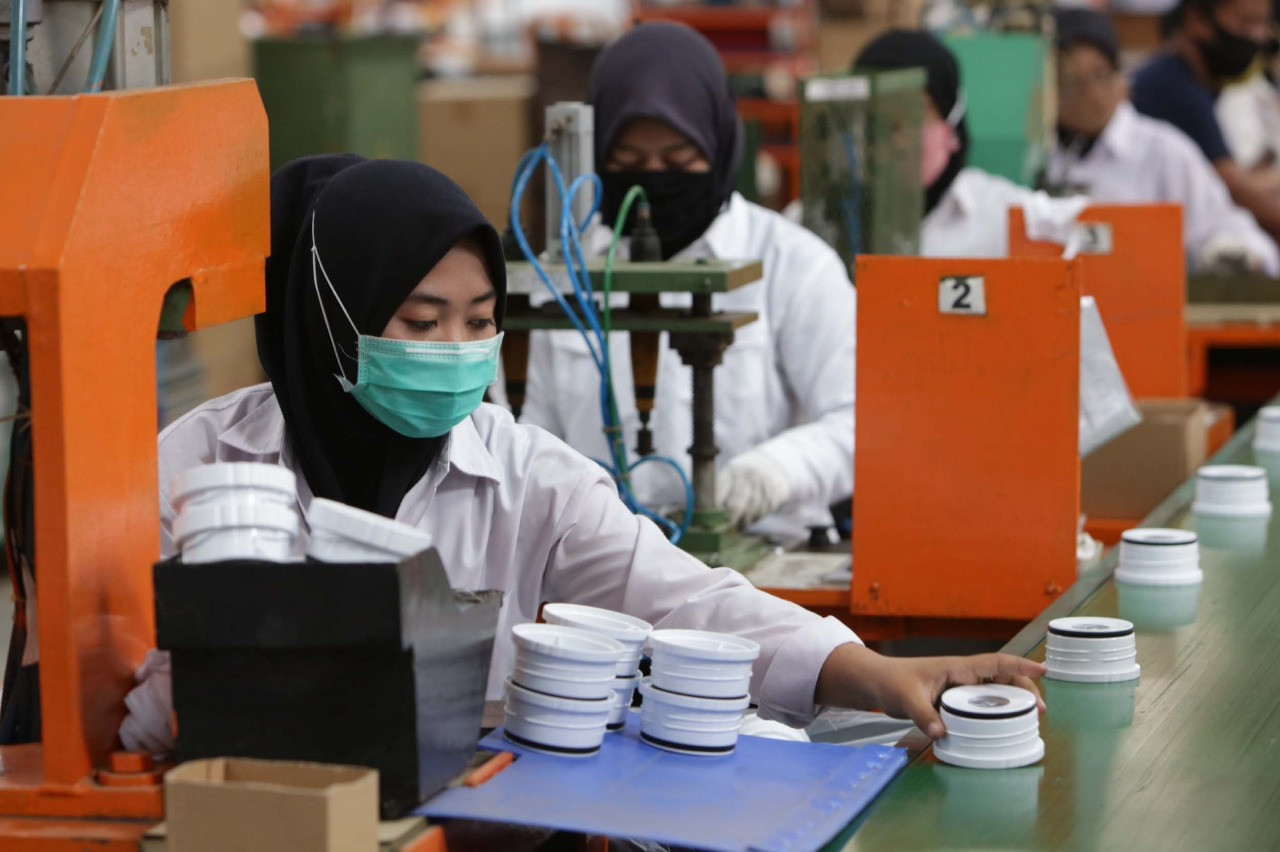Popular Reads
Top Results
Can't find what you're looking for?
View all search resultsPopular Reads
Top Results
Can't find what you're looking for?
View all search resultsFrom single-use pads to sustainable underwear
In Indonesia, which lacks proper waste management infrastructure, most waste goes into landfills and/or ends up in our oceans, harming the environment.
Change text size
Gift Premium Articles
to Anyone
G
rowing up, I rarely talked about menstruation. It was too taboo to be discussed with my family and I was too shy to discuss my period with my friends. This culture of silence leads to a lack of awareness of our reproductive health and needs.
In 2017, six million girls in Indonesia (25 percent) had never talked about menstruation with anyone before their first period (Burnett Institute, Water Aid, Survey Meter). A year later government data showed that among women aged 15-49, only 22 percent know about the concept of the ovulation period during their menstrual cycle.
Taboos around menstruation also lead to limited innovation in this area. Currently, nearly 95 percent of Indonesian women still use single-use pads. Initially invented in the late 1890s, they are now causing health and environmental concerns. Chemicals in the products are potentially harmful for women’s reproductive organs, while the pads are made from 90 percent plastic, which takes 500-800 years to degrade.
In Indonesia, which lacks proper waste management infrastructure, most waste goes into landfills and/or ends up in our oceans, harming the environment.
To tackle the problem, Kopernik, a Bali-based non-profit organization that focuses on testing innovations to solve social and environmental challenges, started a small-scale project called The Perfect Fit. We worked with women in rural areas of East Nusa Tenggara province (NTT) to produce reusable menstrual pads. In remote and rural areas such as these, reusable pads are often not commercially available.
The Perfect Fit is an integrated innovation: local women produce and sell the pads, which gives them an opportunity to provide education about menstruation and reproductive health. We worked with marginalized groups (women with disabilities, gender-based violence survivors, and single mothers), and involved them in the production, distribution, and use of the product.
Over two years, we produced 50,000 reusable pads with three different designs. We provided regular income for ten producers and 30 resellers, while disseminating information about menstruation and reproductive health.
Bold ideas and innovation can only prosper in an accepting environment. Many of us were taught at school to avoid mistakes in order to get good grades, and therefore mistakes came to symbolize failure, rather than an attempt at discovery. On the other hand, we were also taught that most inventors built their masterpieces after thousands of mistakes.
Kopernik adopts a lean approach to tackle pressing problems in Indonesia’s last mile communities. This approach is inspired by lean start-up methodology that emphasizes three principles. First, we build a hypothesis for our ideas/solutions. Second, we conduct an experiment to test the hypothesis using prototypes of our ideas. Third, we use the data from product users as a process of iterative product development.
In our case, we adopted this approach to tackle the problem of limited options of sustainable menstrual products in Indonesia.
We started by interviewing 150 women to understand their pain points when it comes to menstruation. We continued the iteration process and designed three prototypes until we achieved the minimum viable product — something our pad users were willing to buy and use.
Talking to users and iterating continuously provided us with a great learning experience, as it was only through this process that we could respond to questions such as: Are thicker pads better? Which fabric do users like the most? How can leaking be prevented?
By talking to users beyond Indonesia’s rural areas, we quickly learned that there is also a significant unmet need for safe and sustainable menstrual products in other parts of the country. In urban centers, women are more aware of the health and environmental concerns of single-use pads, however, there has been very limited innovation to tackle the problem. This prompted our team to formulate a solution that would replace single-use pads with menstrual underwear specifically designed to prevent leaking and staining.
With the support of Kopernik and Simavi – a Dutch-based non-profit aiming to empower women and girls to claim rights to equality and basic needs – we finally decided to take a huge leap to scale Perfect Fit from a social project into a start-up.
Much like start-ups need an accepting environment to thrive, women need an accepting environment to talk about their sexual and reproductive health. Perfect Fit was created by rejecting the fear of failure and rejecting menstrual taboos. We are on a mission to support women’s health, protect the environment, and empower communities.
We will use our platform to actively increase women’s access to education about their bodies, health, and environment.
***
The writer is CEO and cofounder of the Perfect Fit, a social enterprise producing sustainable period products proudly made in Indonesia.











